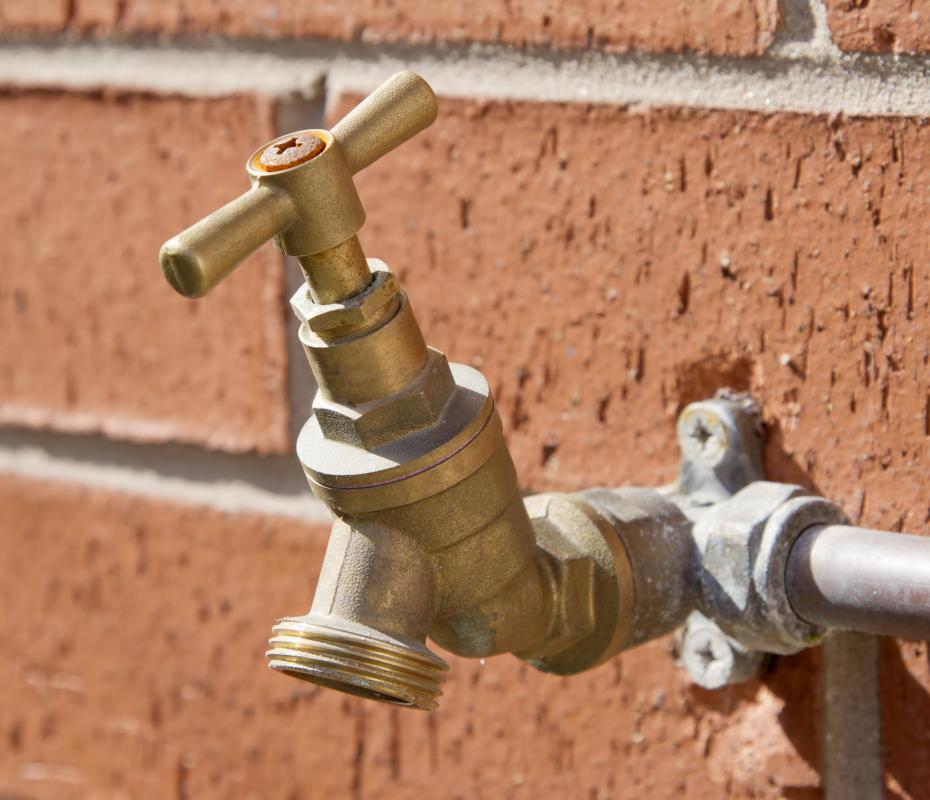At HomeQuestionsAnswered, we're committed to delivering accurate, trustworthy information. Our expert-authored content is rigorously fact-checked and sourced from credible authorities. Discover how we uphold the highest standards in providing you with reliable knowledge.
What is a Hosepipe Ban?
A hosepipe ban is a restriction on outdoor water usage. Hosepipe bans are also known as water usage restrictions or outdoor water-use restrictions. The goal of a hosepipe ban is to conserve water by asking all citizens to use less water on a daily basis, thereby ensuring that there will be available water for firefighting, environmental remediation, and home use such as drinking and bathing.
Typically, a hosepipe is ordered by the regional government. In some cases, outdoor water usage is banned entirely, but more commonly, it is simply severely restricted. For example, people may be asked to use outdoor water pipes only during the morning and afternoon, when water loss through evaporation is reduced, or people may be allowed to water on alternate days. Some regions institute watering schedules like an even/odd schedule, in which people in odd numbered houses may water on certain days, and even numbered houses may water on others.

Hosepipe bans apply to watering the garden, washing cars, and hosing down the sidewalk, and they also apply to businesses which use outdoor water spigots. In this way, a hosepipe ban is kept as equal as possible, by ensuring that everyone in a community pitches in.
When someone violates a hosepipe ban, he or she is typically warned first, and fined after additional offenses. Multiple offenses can cause the utility to cut off the supply of water to the home for a set period of time as punishment. During hosepipe bans, it is not uncommon to see neighbors turning each other in for violating the ban, either out of a sense of civic duty or resentment, and typically enforcement of such bans is delegated to local law enforcement and water officials.

Sometimes, a hosepipe ban is very short term, as when a neighborhood experiences water pressure problems or a broken water main. In these instances, the ban is designed to reduce stress on the system for a few hours while the problem is addressed, with the goal of preventing a total outage. In other cases, drought conditions or severe dryness which could cause fires lead to a more long-term hosepipe ban which may last for months.
During a hosepipe ban, you don't have to watch your garden wither away. Most bans are sympathetic to gardeners, and designed to give you a chance to water every few days. You can also save greywater from washing dishes and taking showers to keep your garden moist. If you live in an area where hosepipe bans are common, you may want to consider planting with native and drought-tolerant species, as these plants will be able to last for an extended period of time without watering.
AS FEATURED ON:
AS FEATURED ON:












Discuss this Article
Post your comments